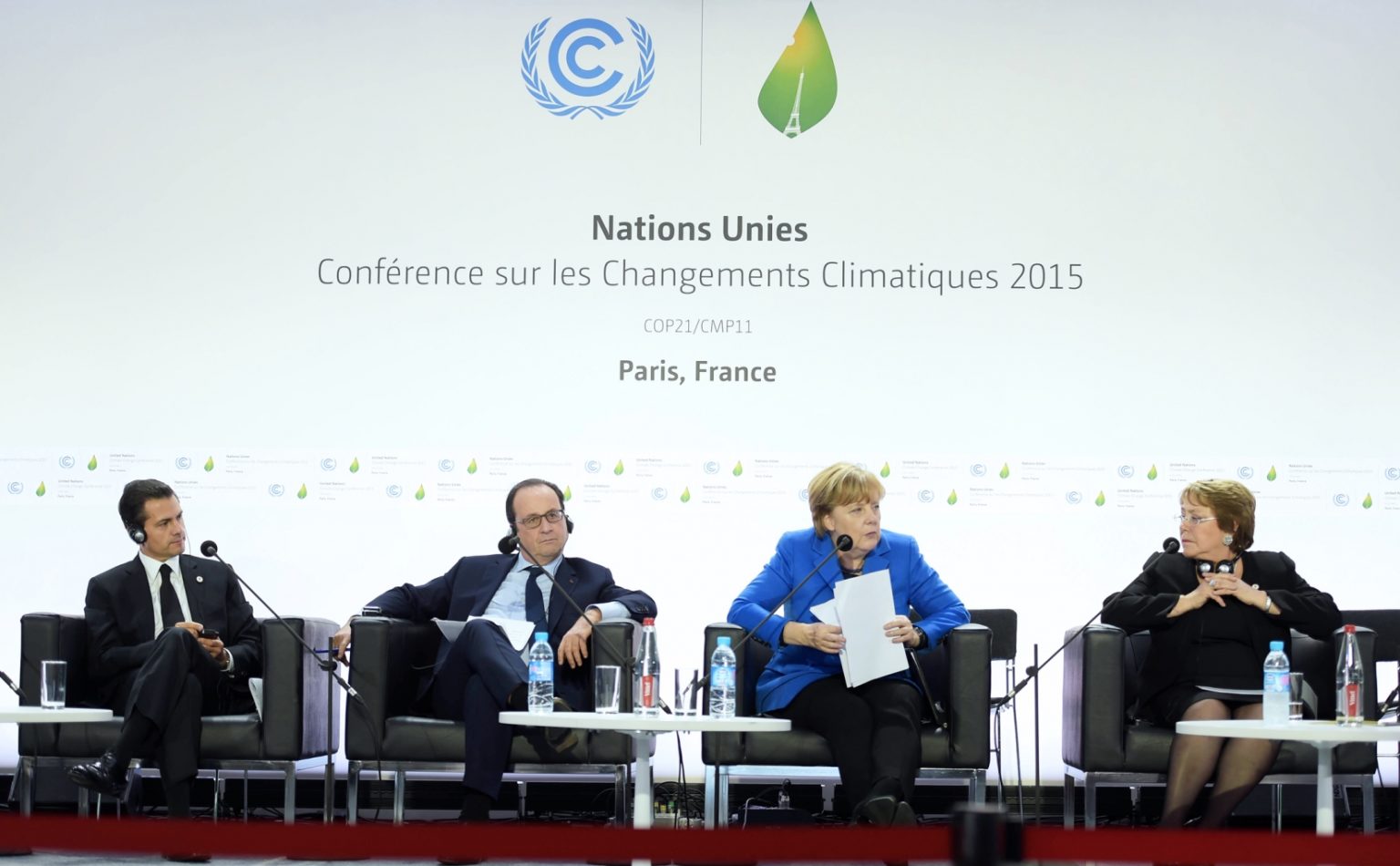European environment ministers made slow progress in Luxembourg on Monday in trying to speed up the EU’s ratification process of the Paris climate agreement and in reforming its emissions trading scheme.
At the Environment Council meeting, the 28 ministers agreed to ratify the Paris Agreement “as soon as possible” and acknowledged that the climate deal means that the EU emissions trading scheme (EU ETS) must be reviewed in the near future to ensure the level of ambition is in line with the agreed climate targets.
However, director of climate NGO network CAN Europe, Wendel Trio criticised the proposed reforms to the EU climate targets, calling them “weak” as they are not enough to ensure that warming is limited to below 2C above pre-industrial levels.
Early Ratification
France’s environment minister Ségolène Royal, also called on the Environment Council to ensure ratification in time for COP22 in November, warning that Europe is pressed for time if it wants to avoid the agreement coming into force without it.
With commitments from the US, India and China many expect that Paris might enter into force earlier than expected. The EU therefore faces increased pressure to agree and implement improved climate legislation.
Once at least 55 countries representing at least 55 percent of carbon emissions join the treaty it will come into effect. Some EU member states, however, are reluctant for the EU to join before national targets are set, meaning it may be 2017 or 2018 before the EU can adopt the agreement.
During the meeting, the UK reminded the council of the differences in process and timings of member states’ ratification.
“The EU is not alone internationally,” parliamentary under-secretary of state of the Department for Energy and Climate Change, Lord Bourne, said. “Other major economies have indicated it would take one to two years to ratify.”
He added: “It is the strong view of the UK that the EU and its member states should deposit their instruments of ratification in a collected and coordinated fashion.”
This comes after both France and Hungary have already passed legislation for ratifying the Paris agreement.
It is not clear when the UK will ratify the climate deal. Energy and Climate Change Secretary Amber Rudd has previously said that “the UK will ratify the Paris Agreement together with the EU and Member States as soon as possible”.
However, it is unknown how this might change in the event that Britain leaves the EU.
Emissions Trading
A large part of the meeting was spent discussing the need to reform the EU Emissions Trading Scheme (EU ETS) to bring it in line with the Paris Agreement. The EU ETS tackles climate change by capping and issuing pollution permits to industry, and plays a large part in the EU’s carbon reductions.
The European Commission had proposed reducing the number of permits issued under the EU ETS by 2.2 percent annually based on the goal of achieving an 80 percent emissions reduction by 2050. This is equivalent to between 2C and 2.5C of warming.
But as CAN’s director Trio told DeSmog UK, this is not enough. Achieving less than two degrees Celsius would require 95 percent emission cuts by 2050, or reductions of 3–3.5 percent a year. France was the only country to submit a stronger target than the commission’s proposal, offering 2.4 percent cuts.
The EU ETS targets were set during less ambitious times before the Paris Agreement, which means that the 2020 target has already been reached. Companies therefore don’t need the pollution permits, so the carbon price has dropped to less than 8 euros per tonne of CO2 emitted.
The current commission proposals would see this rise to between 12 and 13 euros by 2030. However, to have a real impact on emissions this would need to be set at 25 euros per tonne.
A number of countries called for the strengthening of the commission’s proposal to put unused permits in a reserve. These excess permits, which keep the carbon price down, can currently be re-used in the next emissions trading period after 2020.
In the face of this, Belgium – which has felt strong lobbying by the steel industry – proposed that the EU ETS should hand out even more free polluting permits. The UK, with its offshore oil and gas industry, was also one of many that emphasised the need for protecting sectors at risk of stronger climate action so they don’t lose out to countries with less strict policies.
The final Commission Statement also included a proposal put forward by Germany which states that countries should begin the ratification process without the beginning of talks on how the EU’s emissions target would be shared amongst the member states.
Climate Action and Energy Commissioner, Miguel Arias Cañete said “we have a very difficult debate ahead”, adding that the commission is “now very well equipped to make progress”.
European Commission proposals on emissions outside the EU ETS are expected in July.
Photo: Wikimedia Commons
Subscribe to our newsletter
Stay up to date with DeSmog news and alerts






